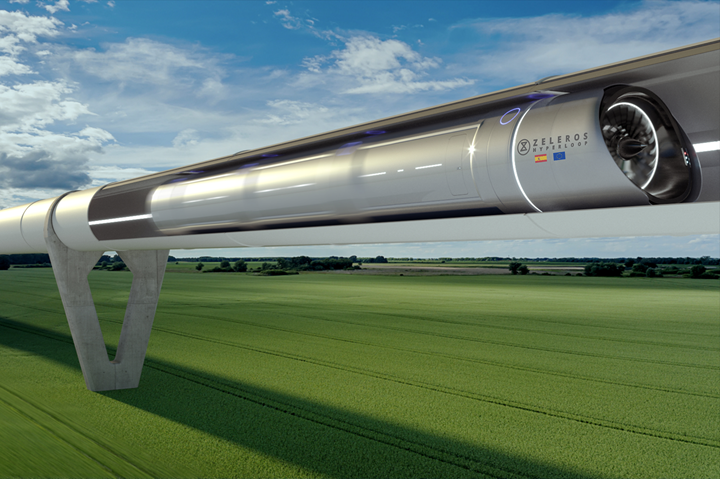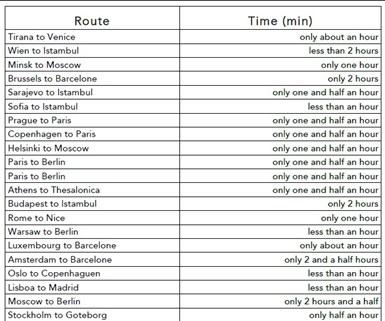Zeleros raises €7 million for European Hyperloop development
Spain-based Zeleros is evaluating composites and other materials in the development of its Hyperloop system.

Source | Zeleros
Hyperloop specialist Zeleros (Valencia, Spain) reports it has raised more than €7 million to further finance its technology development. Considered the “fifth mode of transport,” Hyperloop is being touted as the best and most sustainable alternative for future long-distance transportation, hypothetically covering routes between 400 and 1,500 kilometers and becoming a transportation technology competitive with commercial continental air travel. A Hyperloop connection between Paris to Berlin could reduce travel time to less than an hour. (For more on Hyperloop technology, read “Into the Hyperloop”)

Fig.1 Travel time between main cities and logistical hubs would be reduced using Hyperloop. Source | Zeleros
“These new funds will boost a major milestone of developing and demonstrating our technologies in a real environment of operation,” says David Pistoni, chief executive officer at Zeleros. He also believes the support received from companies such as Altran (Paris, France), and Grupo Red Eléctrica, as well as several national and international strategic investors, will unlock paths toward Hyperloop-based routes not just in Europe, but worldwide.
Zeleros says it has approached development of the Hyperloop through a lens similar to the aerospace industry, creating an “aircraft inside a tube,” which will transport individuals and cargo accordingly. Zeleros says its decision was made for several reasons, including aviation’s certification to fly large amounts of passengers, with established pressure levels deemed safe, and low-cost infrastructure options, such as an electrified aircraft compressor that could propel the Hyperloop vehicle autonomously. With this approach also comes possible application of composite materials for the Hyperloop, since they have offered high resistance and low weight for a variety of industries, including aerospace. Zeleros notes that no matter what materials are chosen, they must be the best in terms of sustainability, cost and performative.
The next step after funding is the deployment of the European Hyperloop Development Centre in Spain, including a 3-kilometer test track to demonstrate the effectiveness of Hyperloop at high speed. The main aim of Zeleros’ project is to accelerate the development of the hyperloop industry in Europe by creating an ecosystem of international industrial, technological and institutional partners in sectors such as railways, aeronautics, infrastructure and electrification.
Related Content
-
Plant tour: Joby Aviation, Marina, Calif., U.S.
As the advanced air mobility market begins to take shape, market leader Joby Aviation works to industrialize composites manufacturing for its first-generation, composites-intensive, all-electric air taxi.
-
Infinite Composites: Type V tanks for space, hydrogen, automotive and more
After a decade of proving its linerless, weight-saving composite tanks with NASA and more than 30 aerospace companies, this CryoSphere pioneer is scaling for growth in commercial space and sustainable transportation on Earth.
-
Plant tour: Spirit AeroSystems, Belfast, Northern Ireland, U.K.
Purpose-built facility employs resin transfer infusion (RTI) and assembly technology to manufacture today’s composite A220 wings, and prepares for future new programs and production ramp-ups.













